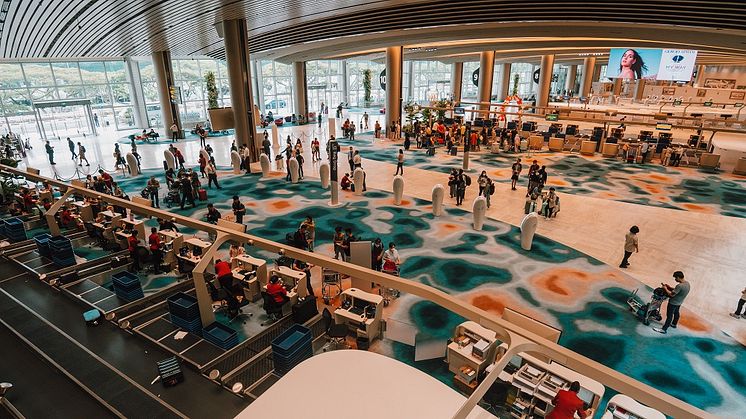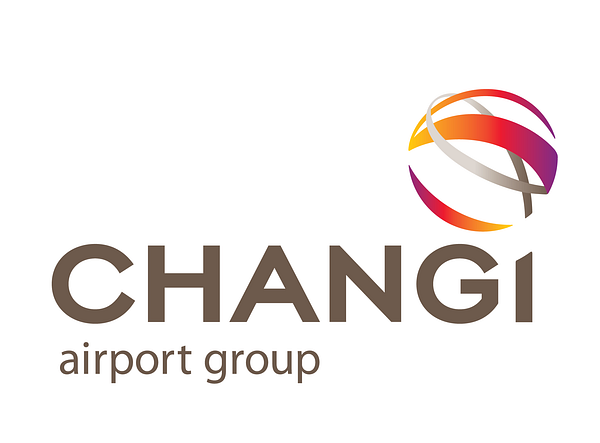
Press release -
2022 - A year of recovery for Changi Airport
SINGAPORE, 14 December 2022 – The year 2022 has been one of strong recovery for Changi Airport. With the relaxation of travel restrictions in April, Changi Airport has seen passenger and flight movements rise steadily through the months. While only Terminals 1 (T1) and 3 (T3) were serving passengers at the start of the year, Changi reopened Terminal 4 (T4) in September and the southern wing of Terminal 2 (T2) in October, to cater to the surge in both outbound and inbound travel demand.
In tandem, travel retail sales have also seen a revival, with Liquor, Perfumes & Cosmetics, and luxury products once again emerging as the top categories in Changi’s stores to date. At the landside, all the shops in T1 and T3 are open to welcome both travellers and visitors. At the same time, Jewel Changi Airport has continuously refreshed its offerings, with both homegrown and international brands setting up shop at the nature-infused attraction.
To handle the strong uptick in passengers and flights, the various organisations within the airport community have actively ramped up their manpower and staff training. Throughout the pandemic, they have worked closely with and supported one another to persevere through the challenging Covid-19 period, while continuing to uphold the high service levels that Changi has worked hard to build. For its continuous pursuit of service excellence to offer the best Changi Experience to passengers, Changi Airport was presented the Best Airport Staff award by Skytrax for the second year running. Including this award, Changi Airport has garnered a total of 655 awards since its inception, making it the most awarded airport in the world.
Recovery of the Changi Air Hub
In the first 10 months of 2022, Changi Airport saw 23.6 million passenger movements, representing 42% of pre-Covid-19 levels. Aircraft movements, which include landings and takeoffs, totalled about 170,000, 53% of pre-Covid-19 levels.
For the month of October 2022, Changi Airport handled 3.69 million passenger movements, representing about 65% of that handled in October 2019. Some 21,800 aircraft movements were registered in the same month, about 68% of that registered in October 2019.
As at the first week of December 2022, 95 airlines operate over 5,500 weekly scheduled flights at Changi Airport, connecting Singapore to some 140 cities in 48 countries and territories worldwide. This is 82% of Changi’s pre-Covid-19 connectivity.
In 2022, Changi Airport welcomed eight new airlines. There is a mix of full-service and low-cost carriers as well as freighter operators - Aircalin, Atlas Air, Bamboo Airways, Cambodia Airways, Citilink, HK Express, Thai Vietjet and T’way Air. We also added four new destinations to our network – Noumea (New Caledonia), Jeju (South Korea), Pune (India) and Sibu (Malaysia).
For the first 10 months of the year, Changi’s top five country markets were Australia, India, Indonesia, Malaysia and Thailand. However, the strongest passenger traffic recovery has come from the regions of North America, South Asia, and Europe.
Passenger traffic to and from North America has rebounded strongly to exceed pre-pandemic levels. For the South Asia market, apart from re-establishing all pre-Covid city links, Changi also added a new city link to Pune on 2 December 2022. For Europe, Changi has almost returned to pre-Covid level of flight frequencies.
On the cargo front, Changi Airport registered more than 1.5 million tonnes of air cargo throughput from January to October. Its top five air cargo markets for the first 10 months of the year were Australia, China, Hong Kong, Japan and United States of America.
In August 2022, we welcomed the partnership between DHL Express and Singapore Airlines to operate five Boeing 777 freighters out of Changi Airport, which will fly on routes between the United States and Singapore via points in North Asia and Australia.
Notwithstanding near-term challenges such as global economic uncertainty and inflationary pressures, air cargo continues to be a bright spot for Changi Airport as it remains steadfast in its mission to facilitate global trade and support the flow of essential goods, including medical supplies, into Singapore and onwards to the surrounding region.
Our continued quest to strengthen Changi Airport’s cargo handling capabilities and building connectivity has garnered industry recognition. Changi Airport won the “Best Airport – Asia (Over 1million tonnes)” award at the recent 2022 Asian Freight Logistics and Supply Chain (AFLAS) Awards. The awards, hosted and organised annually by Asia Cargo News, recognise leading service providers and associated industry professionals. Changi Airport also received commendation by the panel of judges for the “Cargo Hub of the Year” and “Air Cargo Pharma Award” category at the Air Cargo News Awards 2022. The “Global Airport of the Year” award was also presented to Changi Airport at the 9th Payload Asia Awards, which recognise industry leaders and trendsetters of the air cargo and logistics supply chain who stay at the forefront of innovations.
Resumption of scheduled flight operations at Seletar Airport
In June 2022, Firefly reinstated its services to Seletar Airport from Sultan Abdul Aziz Shah Airport, Subang, Malaysia, a significant milestone for the recovery of air services from the Covid-19 pandemic. With the resumption of scheduled flights, the airline now operates six daily Kuala Lumpur - Singapore services between Sultan Abdul Aziz Shah Airport and Seletar Airport.
Increasing capacity to handle higher passenger volume
To facilitate the strong pickup in travel demand, Changi Airport progressively reopened T2’s Arrival Hall in late May, followed by T4 in September and the southern wing of T2’s Departure Hall in October. Ahead of the terminal reopenings, multiple operational readiness tests involving thousands of participants from different airport partners were carried out to test various systems and processes, to ensure that all the terminals reopened smoothly.
Today, Changi Airport has capacity to handle more than 70 million passenger movements a year. This exceeds the 68.3 million passenger movements of 2019.
In tandem, the various airport organisations have been actively recruiting more staff to ramp up their operational capacity to handle more flights and more passengers. The aviation sector in Singapore has been organising job fairs and other activities to bring in more workers to meet the demands generated by the air travel recovery. Since the start of the year, over 6,000 new workers have joined the aviation industry.
Upgrading the Changi Experience
In February, Changi Airport launched new initiatives to better support passengers with invisible disabilities, such as autism spectrum disorder, Down syndrome, and dementia. Aimed at creating a more stress-free and inclusive travel experience for these passengers, the initiatives include a customisable step-by-step airport guide (Changi Airport Social Story), having a pool of staff trained in identifying passenger with invisible disabilities, and being alert to special identifying lanyards, so these passengers can get help more easily and discreetly. The initiatives were developed by CAG in consultation with special needs schools and organisations.
With the increase in passenger traffic, Changi Airport’s well-loved facilities such as the Butterfly Garden in T3 and Sunflower Garden in T2 also reopened to delight passengers.
With the reopening of T2, all the Skytrain services in the public areas also resumed service, bringing convenience to visitors and joy to airport fans who frequent the airport as their weekend family haunt.
Over at the airside, Changi Airport introduced a new runway condition reporting system which can automatically assess and relay any change in runway surface characteristics to air traffic controllers and pilots in real-time, in line with the latest requirements of the International Civil Aviation Organization (ICAO). This involves the use of sensors to continuously monitor the level of running or standing water on the runway surface during wet weather, and broadcasting it to air traffic controllers so that they are more aware of environmental factors of operational significance. Pilots can also make use of the information provided to better control aircraft take-off and landing performance.
Travel retail revival at Changi Airport
With the recent resumption of operations in T2 and T4, shops will re-open progressively in the upcoming months in tandem with passenger traffic recovery.
The surge in travel demand at Changi is leading to a revival in travel retail sales at the airport. The most popular product categories are Liquor, Perfumes & Cosmetics, and luxury products. Even with Chinese tourists, who were the biggest spenders during pre-Covid days, still absent from the travel retail scene in Changi, some brands are seeing sales surging past pre-pandemic levels.
From end-September to the year’s end, CAG is running its inaugural World of Wines and Spirits (WOWS) in partnership with Lotte Duty Free, bringing Changi’s duty-free offerings to another level. WOWS showcases the world’s most internationally acclaimed, exclusive and premium wines and spirits, featuring over 200 of the finest products from more than 75 brands, including first-in-the-region rarities from renowned labels like Bowmore, The Macallan, Midleton, The Singleton and Penfolds.
Besides themed holiday activations such as Chupa Chups and Peanuts in March and May respectively, the airport also rolled out various dining promotions and shopping campaigns during festive periods to drive sales to support tenants operating in the airport’s public areas.
Forging a sustainable Changi
Changi Airport Group (CAG) is committed to advancing Changi Airport as a sustainable air hub. Besides committing to zero carbon growth until 2030 and capping absolute carbon emissions at 2018 levels, CAG strives towards a Net Zero aspiration by 2050 through the use of new technologies and the increased adoption of renewable energy. To power more sustainable air travel, CAG also supports green initiatives by airport partners, including the adoption of Sustainable Aviation Fuel by airlines operating at Changi.
In addition to reducing carbon emissions, CAG continues to reduce overall water consumption, as well as optimises waste management by encouraging good recycling practices and implementing effective waste collection systems.
Launch of Changi Airport’s TikTok account
To expand Changi Airport’s social media presence, Changi Airport launched its official TikTok account (tiktok.com/@changiairport) on 25 April 2022. In the seven months since its launch, the channel has attracted over 56,000 (as of 1 Dec 2022) followers, with over 100 short video content posted. By riding on trends and creating unique airport content, more than 10 videos registered over 100,000 organic views. The most popular TikTok video garnered over eight million organic views and over 1.3 million engagements. Topics are wide-ranging, including behind-the-scenes airport stories, new developments in the airport, and tips and hacks for travellers.
With the launch of Changi’s TikTok account, the airport now connects with fans across a plethora of social media platforms, sharing breaking news on platforms like Facebook and Twitter, and inspiring travel with visually captivating content through its Instagram and YouTube accounts.
High resolution images can be downloaded from here. Images are to be credited to Changi Airport Group.
Topics
Categories
About Changi Airport Group
Changi Airport Group (Singapore) Pte Ltd (CAG) (www.changiairportgroup.com) was formed on 16 June 2009 and the corporatisation of Singapore Changi Airport (IATA: SIN, ICAO: WSSS) followed on 1 July 2009. As the company managing Changi Airport, CAG undertakes key functions focusing on airport operations and management, air hub development, commercial activities and airport emergency services. CAG also manages Seletar Airport (IATA: XSP, ICAO: WSSL) and through its subsidiary Changi Airports International, invests in and manages foreign airports.
As one of Asia’s most connected international aviation hubs, Changi Airport links Singapore to some 140 cities globally, with over 90 airlines operating more than 5,500 weekly flights. Jewel Changi Airport, a multi-dimensional lifestyle destination, opened in April 2019, adding to Changi Airport’s shopping and dining offerings of over 550 F&B and retail outlets across the airport. The world’s most awarded airport, Changi has won over 650 accolades for its consistent and excellent airport staff service, passenger experience and safety standards.

